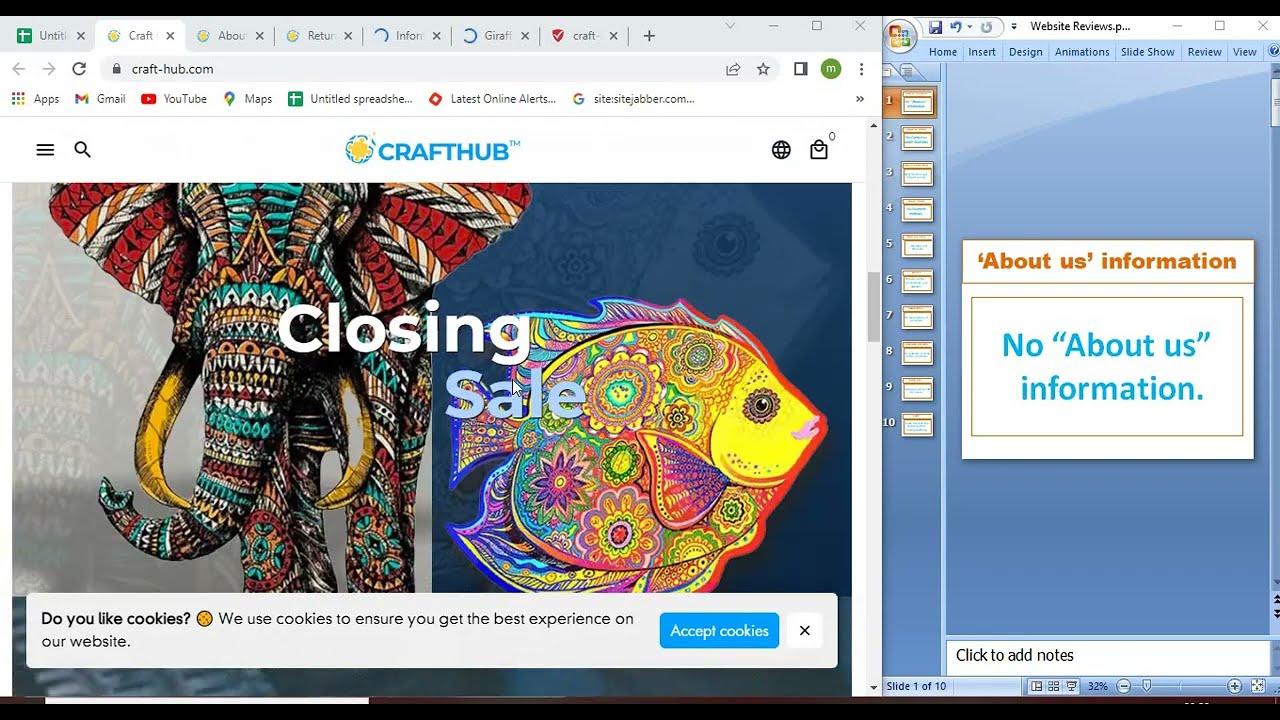
About Craft-hub.com
This company does not currently have a business account, if you are the owner of the company, you can open a business account immediately.
Is this your company?
Claim your profile to access Trustedreviews free business tools and start getting closer to your customers today!
About TrustedReviews
We Fight Fake Reviews
Here’s how you can flag problematic reviews.
We improve experiences
Here's our commitment to you.
We encourage quality customer feedback
We are check comments and we care about data reliability
Business Transparency
Claiming a profile allows the company to do things like reply to reviews, invite customers to write reviews,
Dear users; You can find all kinds of information about TrustedReviews in the faq section.
If you are looking for a place to make some money online, you may want to check out the craft-hub.com website. They offer a wide range of services, from real-time work to multi-dimensional planning. Plus, they have an impressive practitioner gallery. The site has plenty of scams as well, though.
The Craft-Hub is one of the best craft and design shops in the UK. Located in the heart of Wem, it is a great place to pick up the latest and greatest in textiles, ceramics, jewellery, furniture and more. As well as the main shop, it has a large community of artists, a small gallery and a range of workshops and classes to suit all ages and abilities. It is also home to the largest collection of craft and design books in the country. You can find it at 23 High Street, Wem, TD6 9EX. If you are lucky enough to be in the area, it is well worth a visit. And don't forget to pop in for a coffee or two. They are open Thursday to Saturday from 10am to 4pm. This is a great time to catch up on all the latest craft and design trends and the latest in news and developments in the sector.
Multi-dimensional planning is about more than just the spreadsheets and the sex aints of the past. As the name would imply, it takes a well honed mix of business acumen, lateral thinking and a plethora of complementary skills to make the neophyte into a well-rounded employee. Fortunately, there are tools and services designed to help the untrained otphonomenon. For example, a one-hour session with a trained tech wizard will put you well on your way to a solid, scalable and measurable foundation for your digital future. From there, you can leverage the services of an even more experienced partner to augment your efforts.
Craft Hub is a multi-year European project that connects craft practitioners. It is funded by the Creative Europe programme. The project involves nine partners from across Europe, including UK and EU partners. During the three-year project, the project will explore different ways in which craft practices can be enhanced. It will include seven exhibitions and 42 transnational maker residencies.
As a part of the project, CraftHub has set up an online repository, a Material Library, which showcases the variety of materials used by craftspeople. This repository contains craft techniques and skills from professional makers. Through the Material Library, visitors can learn about how different processes affect materials and discover what kind of approaches different practitioners have adopted.
CraftHub also has a Practitioner Gallery, which gives visitors an overview of the different craft practitioners. In addition, it allows members to share their work. There is an "Ask a Maker" feature, which enables visitors to ask questions about the practices and techniques used in the projects.
Craft-hub scams are an online scam in which fake websites use the WHOIS records of real companies to trick victims. The website may also use the names of familiar writers to trick potential victims. Some authors have been victimized by scammers using the names of their friends or family members.
These scammers try to get people to send them money by promising them that they will be able to get a book published or gain bestseller status with USA Today. Often, these authors are willing to pay the scammers in exchange for a charity benefit or bragging rights. But in reality, these scammers will not give you the goods or services they promise.
Scammers use email "scrapers" to gather email addresses from the internet. Using these programs, these scammers search through websites such as Facebook and LinkedIn for any email address that is listed. Once they have the list, they aggregate this information together into one big email list that they sell. Typically, they will then send unsuspecting consumers a list of companies that do not pay their bills and ask them to send money to pay for these services.
